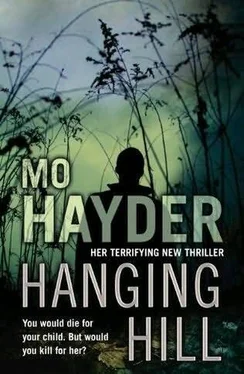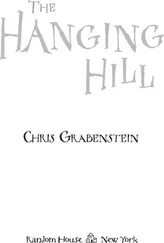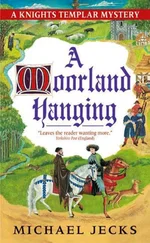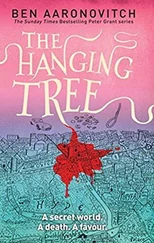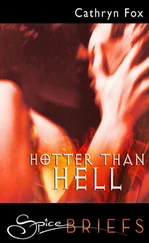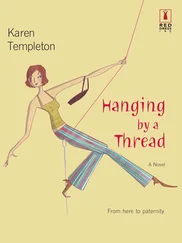A noise from the front of the house. Nothing much, just a vague whisper. Moving silently she closed the drawer, straightened and went to peer down the hall to the front door. The breeze outside was stronger now. It was making the curtains on the landing flutter, sending shadows like flapping wings on to the hall floor. A figure moved on the other side of the frosted glass.
She shot a glance behind her at the kitchen. The door was still open. Another noise and then, shattering the silence, the person began to knock at the door, the noise echoing through the house. It pushed her into action. She slid silently back the way she’d come, out of the kitchen, into the garden, walking fast in a straight line away from the house where she wouldn’t be seen from the front, her hands in her pockets, her head down. It was only when she got to within ten yards of the gap in the hedge that she broke into a run.
She ran as fast as she could, fumbling in her pockets for her keys. The thorns in the hedge tore at her, the gravel in the parking space made her stumble. She was sweating and trembling as she got to the car. She wrenched the door open and threw herself inside.
As she got the key in the ignition Steve’s voice came back to her. You won’t get punished .
‘Steve, you were wrong,’ she muttered, starting the engine. ‘You couldn’t have been more wrong.’
Zoë stood on the doorstep, her arms folded, her back to the gamekeeper’s cottage, waiting for someone to answer the door. She surveyed the garden. It was a mess, with overgrown grass and a derelict garage, the weatherboarding rotting and hanging off. Over at the entrance, where a vegetable plot had been dug out, there was a stack of metal cages – fox ‘trods’ for trapping the animals. A keeper would need these especially at this time of the year. The foxes were only just recovering from the winter. This was their rebound time, and because it coincided with the young pheasants being at their most vulnerable, still too weak to fly into the trees, you’d often see keepers ‘lamping’ in their Land Rovers – bumping across the fields aiming their huge torches out into the darkness, attracting the foxes out of the hedges to be picked off one by one by a twelve-bore shotgun.
No one came to the door so she bent and looked through the letterbox. She could see a small hallway with dark polished floors and a patterned runner on the narrow staircase. No one in there. Strange. She’d had the sense there was. She checked her watch. Most people would be at work now, but a gamekeeper could keep any hours. If Goldrab had run a lot of driven pheasant hunts during the season they’d be breeding them on an intensive scale. A lot of places around here still did that in spite of the animal rights movement – and at this time of year there were scores of chicks at different stages of hatching. The keeper could be anywhere.
She realized she could hear water. Just a faint noise coming from somewhere behind the cottage. She went round the side and saw a dilapidated stone mill building with slate tiles stretching out at right angles to the cottage, spanning the stream, which rushed and echoed in a tunnel under the foundations. The braced redwood doors had been slid open to reveal the mill’s concrete floor, lightly strewn with straw.
‘Hello?’ she called. ‘Hello?’
No reply or movement, just the distant sound of a woodpigeon cooing, the constant undernote of running water.
‘Hello?’
She stepped inside the mill. The air was warm, full of noise. A giant waterwheel would have once been mounted at the far end of the building where the stream rushed under the boards, but it had been dismantled and a floor put over the open area. A concrete aisle ran down the centre, on either side of which were four wire-mesh holding pens with aluminium drop pans and red heat lamps hanging above them. A murmur was rising from the scores of pheasant chicks in the pens that squeaked and shuffled and ruffled their feathers.
‘Hey.’ Zoë leaned over the pen and held her hand out to them. ‘Hey, little guys.’ They scattered away from her, running off, banging into each other and gathering in a group at the rear of the pen, eyeing her nervously. She wandered around a bit longer – found a large, netted cage at the end of the building with older pheasants, all fitted with little face masks to stop them pecking each other. They straightened their necks and blinked at her, ratcheting their heads from side to side.
Behind the pen was a bench with a vice, several jam-jars full of nails and screws and, mounted on a magnetic strip above the bench, a set of hunting knives – the type that could be used to field-dress and skin animals. Zoë studied them for a while, wondering if they’d been used to skin David Goldrab. She eyed the pheasants with the masks – were they fussy about what they ate? A body could disappear like that and never be found.
She went back into the open air. Near the mill doors, set at an angle in the grass, there was a hole with a grate – an entrance to an oubliette or an old ice house for a forgotten manor, maybe – with a big, padlocked chain linked through it. She made a mental note of it, then wandered back to the cottage, her hands in the pockets of her jeans, pausing to put her nose to the windows and peer inside. Idly she tried the back door. It opened. She hesitated, looking down at the handle, half surprised. Then she stepped inside.
‘Hello?’
No reply, so she went into the kitchen and along the hallway, opening doors as she went, checking inside. No one here. She went upstairs, the curtain on the landing flapping and twisting like a ghost in front of her. She found two bedrooms – one with a bed against french windows that opened, improbably, on to a wrought-iron balcony overlooking the stream, the second empty save for a pile of cardboard boxes and an old poster of a football team Blu-tacked to the wall. A tube of tennis balls lay on the floor. Christ, there were bloody tennis balls everywhere she went, these days. Lorne. Don’t think I’ve forgotten you. I’m going to find out if you’re somewhere in all of this.
There was a bathroom with greying towels left to dry on the radiator, a framed needlework sampler resting on the window-sill that read ‘I’m not a pheasant plucker, I’m a pheasant plucker’s son. I’m only plucking pheasants till the pheasant plucker comes’. In the cabinet there was a box of medicine, open, the blister packs spilling out. ‘Catapres’, the label read. She’d heard of it. It was something to do with post-traumatic stress. She put the box back, leaned across the bath, opened the window and peered out at the tops of the trees. From here you could see parts of David Goldrab’s house, with its reconstituted stone tiles, its coynes and laughable attempts to blend into the area. The panes of its huge atrium reflected lozenges of sunlight back through the yew trees. Yep, if she was Mooney, the gamekeeper would have been the first person she’d approach.
She went back downstairs. There was nothing much in the front room, just a wide-screen TV and a load of DVDs, but in the back there was an office with paperwork stacked in rickety heaps. She sat down and began leafing through them, hoping to get an idea of this guy. There was a pile of invoices from Mole Valley Farm Supplies with black fingerprints on them. A series of letters from the Royal United Hospital about medical treatment he was receiving. Something to do with a head injury. Sheet after sheet of details of operations and medication and X-rays and…
She stopped, half the pile of paper in one hand, half in the other. She was looking at an image she couldn’t quite fathom. At first she thought it was some kind of Photoshopped joke, the sort of thing people loved to post online – outsize animals, one celebrity’s head spliced on to another’s body, ridiculous fake X-rays of all the weird objects a person had swallowed – because it seemed so outlandish. But when she studied it some more she saw it was real.
Читать дальше
